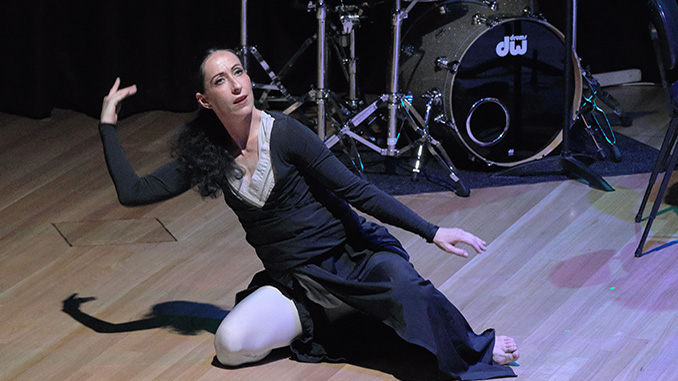 The penultimate concert in the 2021 Canberra International Music Festival was devoted to the cultural significance of the Rainbow Serpent among indigenous peoples and the inspiration provided by the myths surrounding the Rainbow Serpent for contemporary composers.
The penultimate concert in the 2021 Canberra International Music Festival was devoted to the cultural significance of the Rainbow Serpent among indigenous peoples and the inspiration provided by the myths surrounding the Rainbow Serpent for contemporary composers.
Prolific indigenous songwriter, Joe Geia is admired for his ability to express universal themes through his beguiling fusion of reggae, rock and funk with indigenous language and English to create songs with wide cultural appeal.
For this concert he was joined by the ANU Jazz Collective and offered three songs from his repertoire. Relaxed and comfortable Geia chatted briefly with his audience before performing his alternate version of the National Anthem, which raised more than a few wry smiles.
He followed with a gentle love song, Window Pain, then after acknowledging his accompanying musicians, finished with a catchy composition entitled Wanumungu.
Guitarists Andrew Blanch and Vladimir Gorbach then took the stage to present the world premiere of a specially commissioned composition by Christopher Sainsbury entitled Rain falls and after.
Based on a quote from a poem by Melbourne poet, Isobel Robin, the gentle ebb and flow between the two guitars captured perfectly the ambiance suggested by the words, Rain falls and after… a sudden air of mushrooms… and small things moving.
Brian Howard composed The Rainbow Serpent in 1982 for a performance choreographed by Barry Moreland and danced by acclaimed Australian ballet dancer Kelvin Coe. It received only one performance, until reimagined for this year’s festival by indigenous dancer Tammi Gissell under the title, Mundaguddah – Spirit of the Rainbow Serpent.
Gissell is an arresting dancer with a strong presence and stunning technique. It was impossible to tear your eyes away from her as she slithered menacingly around the stage, inspired by Howard’s complex, atmospheric writing, brilliantly realised by a superb seven-piece ensemble conducted by Roland Peelman.
It was a shame however that Gissell’s performance could not have been presented in a theatrical setting as the presence of the musicians behind her considerably lessened the impact of her performance.
The eclectic program completed with Ngarukuruwala, a performance by the Tiwi Strong Women, seven women who sing and dance ancient traditional songs accompanied by a male Tiwi musician, and performing in front of a projected image of a painting by Maggie Timapaetua.
Barefooted, (although two of their number wore socks, perhaps in deference the nippy Canberra weather), outfitted in colourful skirts, and tactfully wrangled by Genevieve Campbell from the Sydney Conservatorium of Music, the seven women charmed their audience with their complete lack of artifice.
Often ignoring Campbell’s attempts at consensus, the group argued unselfconsciously among themselves, in language, as to what item they would perform next and who would lead.
Once decided, they performed, completely rapt in their songs and stomping dances, occasionally disagreeing as to which action went with which words, and seemingly oblivious as to the response of their audiences.
Though fascinating, even moving, to experience this privileged glimpse into the songs and rituals of an authentic ancient community, it was difficult to escape the nagging feeling that by presenting these artists and their traditions in environments so unsympathetic and alien to their intended purposes, even with the best of intentions, perhaps these people were being exploited to provide entertainment and novelty for a privileged few.
Rainbow Serpent
James O Fairfax Theatre – National Gallery of Australia, Parkes PLace, Parkes (Canberra)
Performance: Sunday 9 May 2021 – 12.00pm
Information: www.cimf.org.au
Image: Tammi Gissell – photo by Peter Hislop
Review: Bill Stephens OAM
